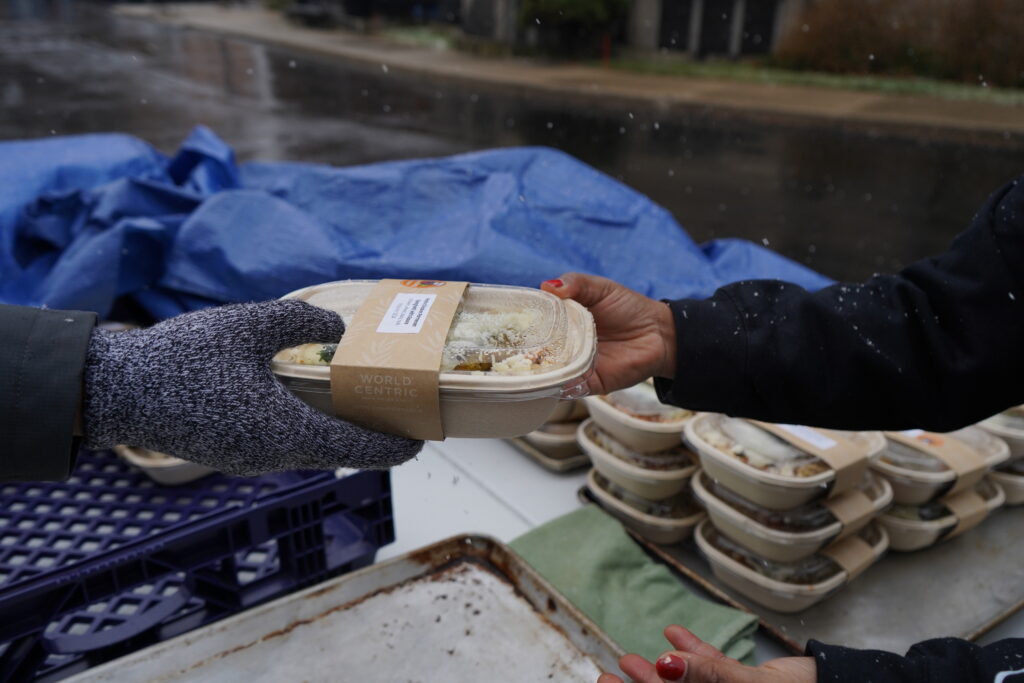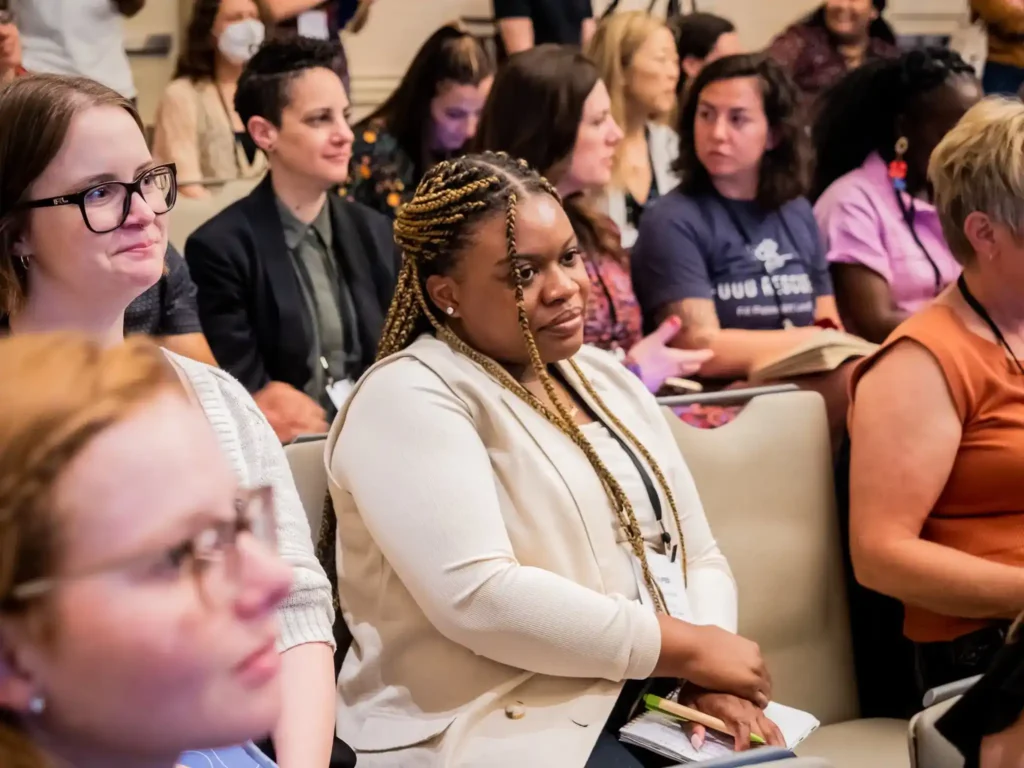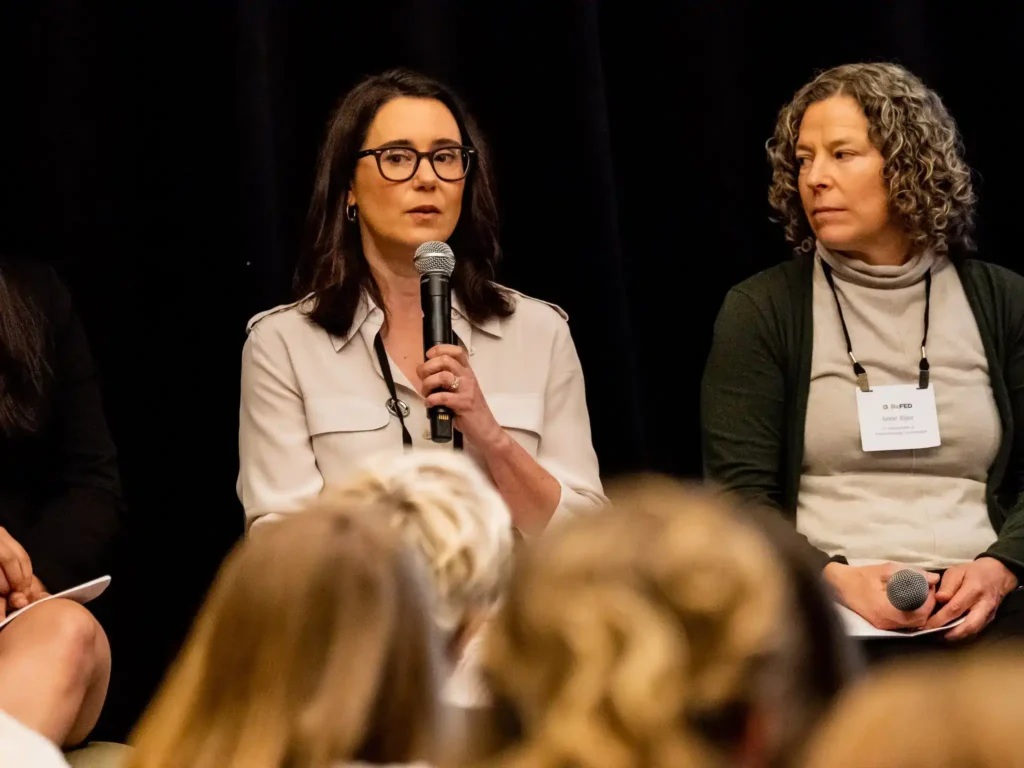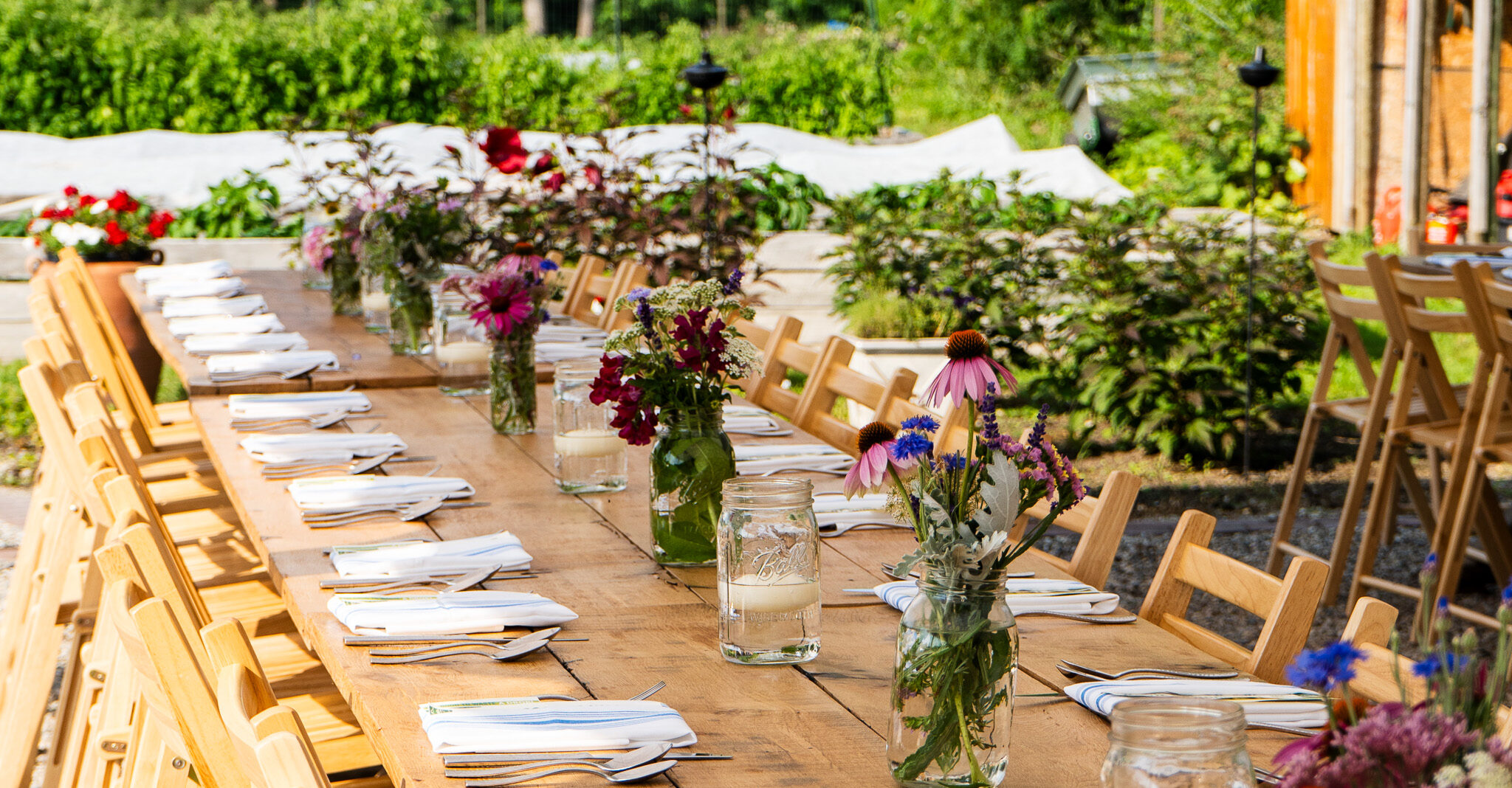Pulling the emergency brake on climate change
Food waste reduction is one of the best solutions to climate change. It’s also doable and cost-effective. Here’s how your support transformed the work in 2024:
Feeding the Community
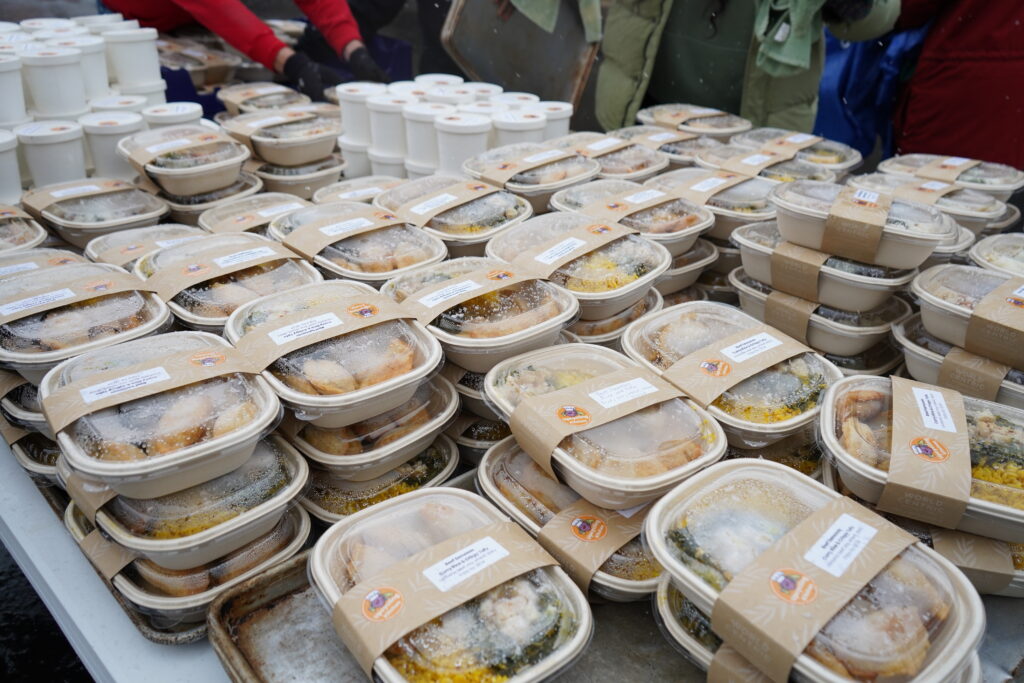
As we head into the fifth year of meal production, we remain committed to creating healthy, delicious meals for the community made with love and care. We believe everyone deserves high-quality food served with respect. This year, our 100,000+ meals were shared with community partners Motor City Mitten Mission, Pope Francis Center, Covenant House, Volunteers of America’s Detroit Veterans Housing Program, Georgia Street Community Collective, Community & Home Supports, Warren Plaza Apartments, Detroit Phoenix Center, Bethel Community Transformation Center, Church of the Messiah, Wayne Metropolitan Community Action Agency, Class Act Detroit, and Eastside Community Network and provided meals for individuals in the community. Again and again, we hear that these meals make a real difference in people’s lives, not only in their quality but also in the spirit in which they are shared.
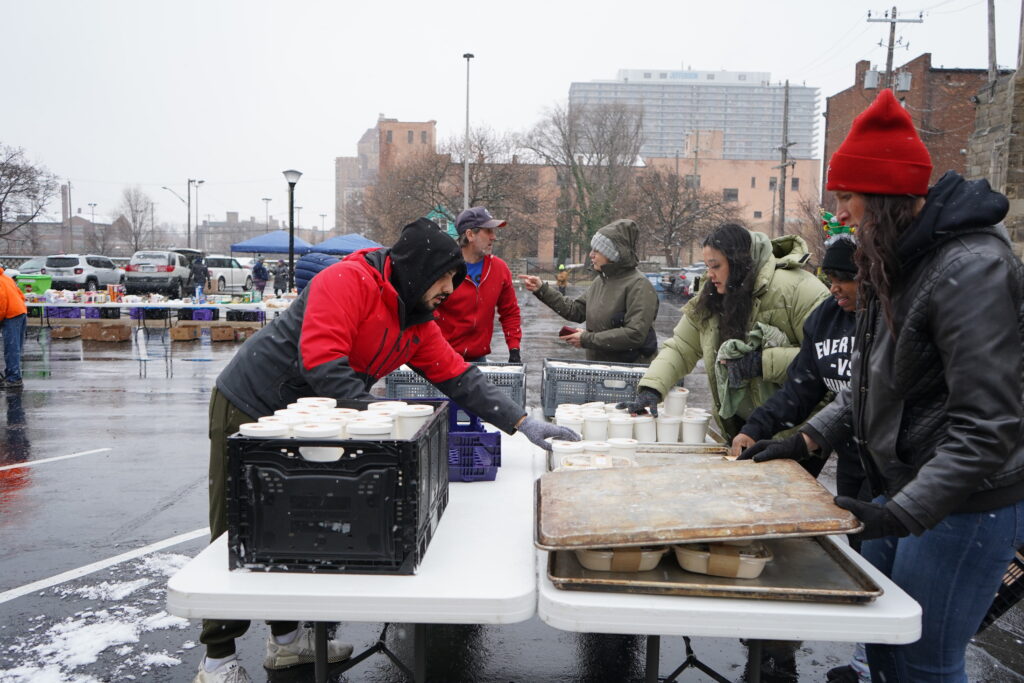
Inspiring the Next Generation

In 2024, Make Food Not Waste partnered with four Michigan higher education institutions – Wayne State University, University of Detroit Mercy, College for Creative Studies, Lawrence Technological University – to educate students about reducing food waste. Student leaders surveyed hundreds of their peers to create a unique educational campaign that not only raised awareness but also resonated with each school’s culture and community.
We are thrilled to announce that Wayne State University’s Plate to Planet program has been awarded the United Nations’ University highest recognition for youth led initiatives: The Outstanding Flagship Project Award!
This fall semester, in collaboration with the Detroit-Windsor UNRCE, WSU Office of Campus Sustainability and the student organization Green Warriors, the team collected data on food waste and hosted educational events and activities. In just 8 weeks, they successfully reduced 20% of their overall food waste in Towers Cafe.
Creating Change
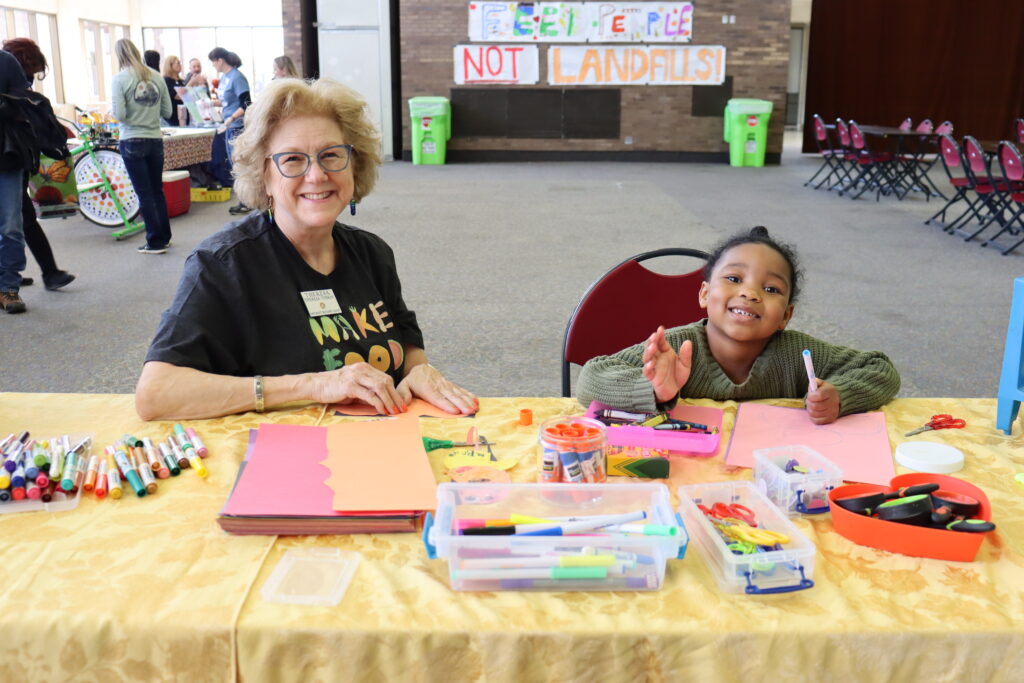
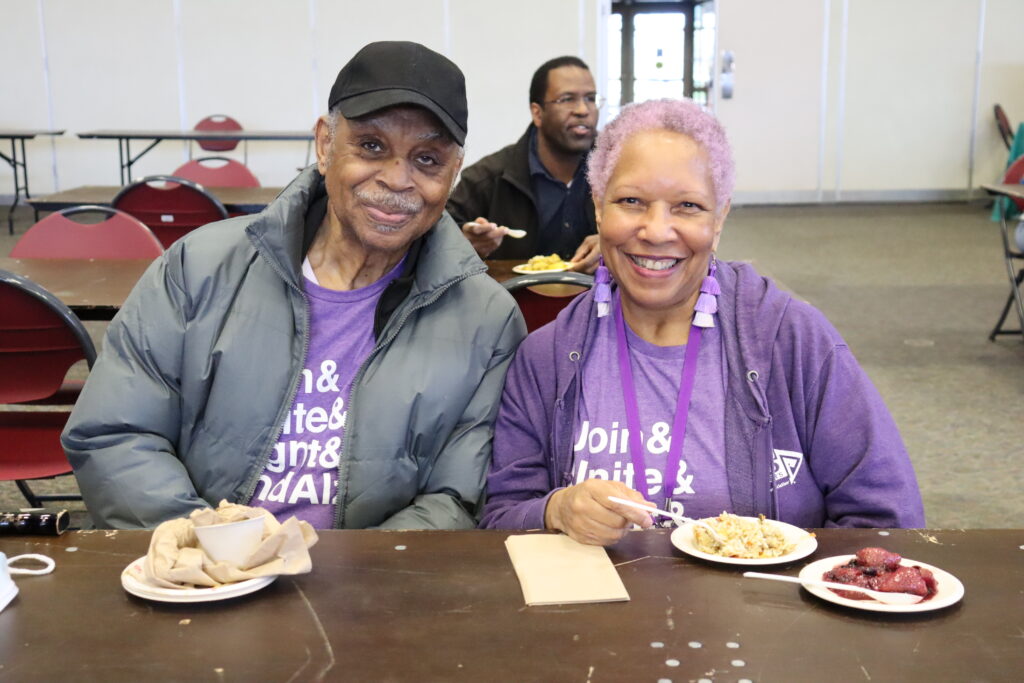
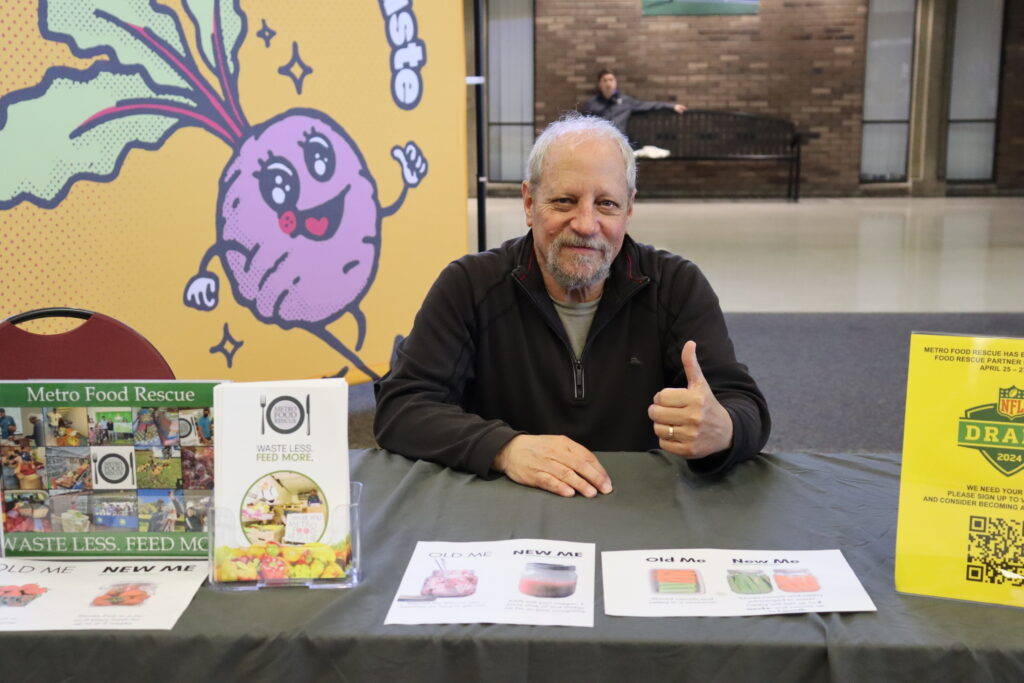
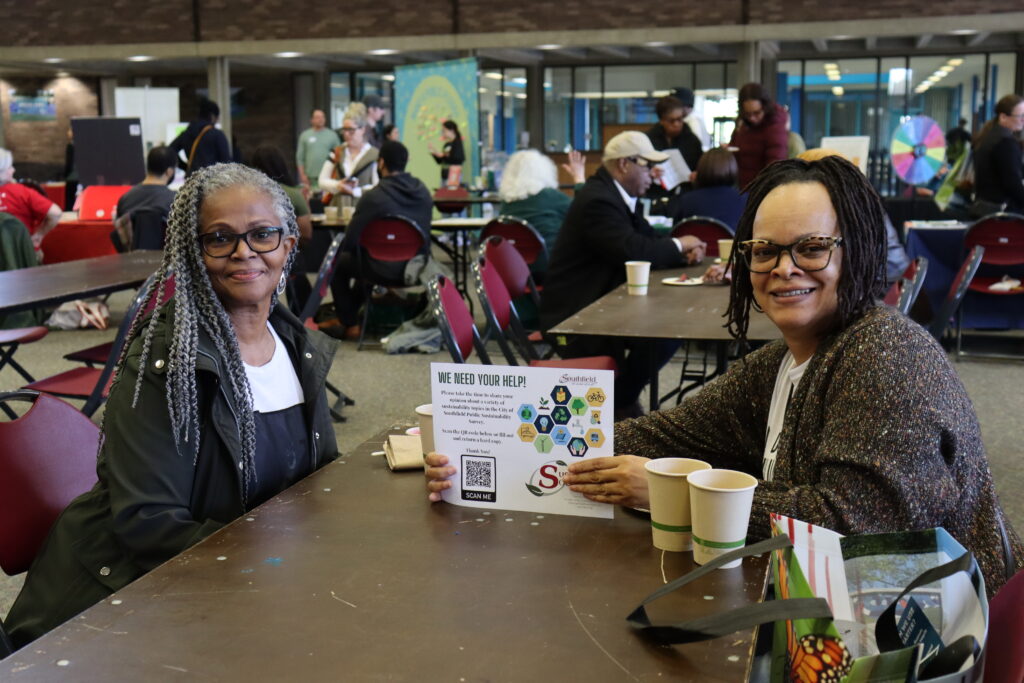
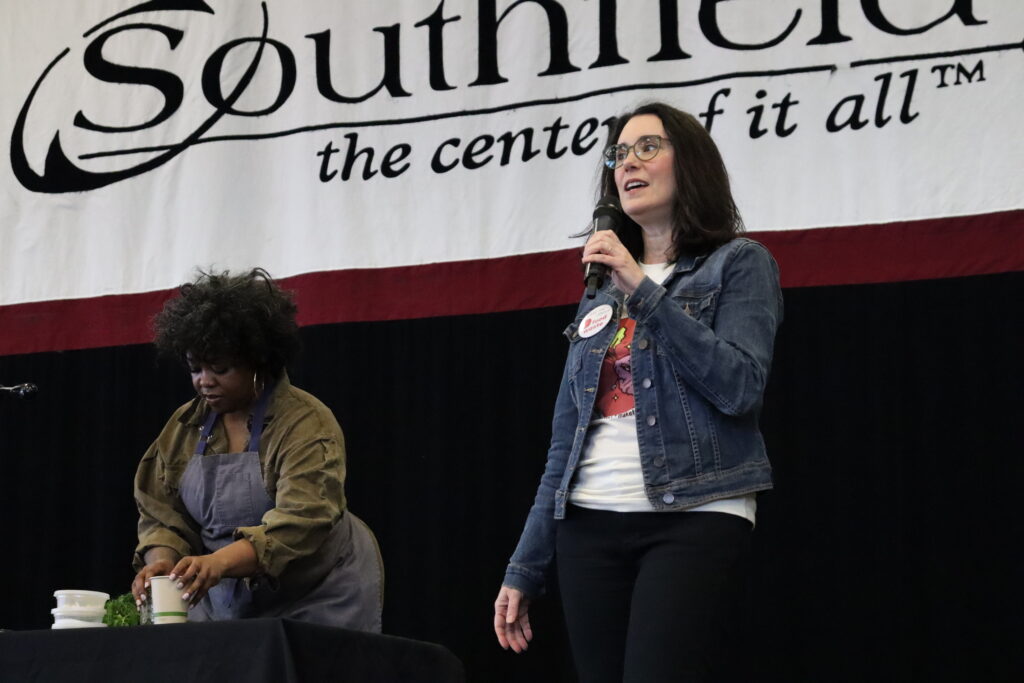
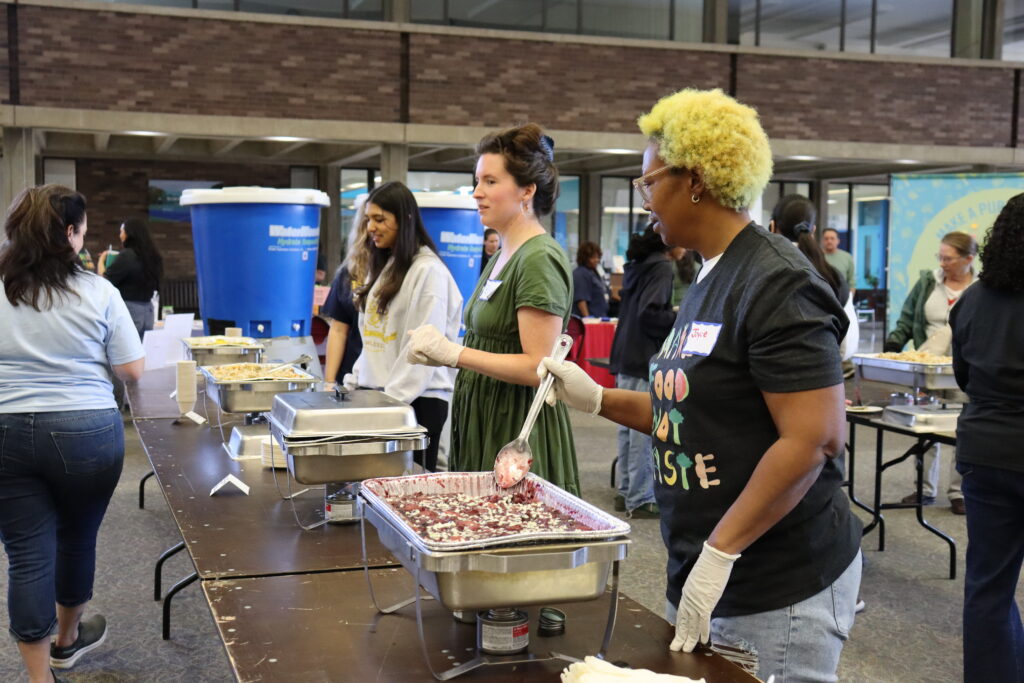
In 2022, Michigan set a goal of cutting food waste in half by 2030, reflecting the urgency of reducing greenhouse gas emissions. This year, Make Food Not Waste put forward an actionable approach to meeting that goal – to prevent and divert all of the food waste in the top 15 most populated cities in Michigan. Starting in Southfield, we outlined what would be required to address all of Southfield’s food waste. We’ve also started the process in Livonia, Dearborn, Westland, Canton, and Farmington Hills. With only five years to go, we are working quickly to support our rescue and compost partners, advise local governments, and provide education and logistical efforts.
